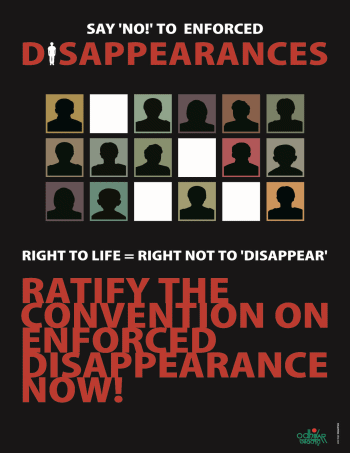Bangladesh has so far failed to implement the promises made before the international community in the Human Rights Council, on key human rights issues. The elected government of Bangladesh, within weeks of coming to office in first week of January 2009, sent a high profile delegation, headed by the Foreign Minister of Bangladesh, Dr. Dipu Moni to Geneva to the first Universal Periodic Review (UPR) of Bangladesh at UN Human Rights Council. Her presence was noted by other government representatives, as Bangladesh had just successfully emerged out of two-years of quasi-military rule under a so-called ‘Caretaker Government’. Expectations at that time were high as the Awami League made lofty promises during the general election to the people, to change the course of governance and it had won unprecedented and overwhelming seats in the National Parliament. Despite this, human rights violations continue unabated in Bangladesh – including extrajudicial deaths, torture and cruel treatment in law enforcement custody, and acts of violence perpetrated on women and children. Reasons for such continuance include, among others, lack of political will, denial by the Government authorities, corruption and impunity. This mid-term assessment report highlights some of these issues of human rights violations.
The report contains the following annexes:
- Recommendations to the Government of Bangladesh on the occasion of the 4th Universal Periodic Review Session, February 2009, by FIDH and Odhikar
- Recommendations made to the government of Bangladesh in the course of discussion of UPR of 3 February 2009
- Report of the Working Group of the UPR in 2009 – addendum Views on conclusions and/or recommendations, voluntary commitments and replies presented by the State under review
- Aide-memoire on Bangladesh’s voluntary pledges towards human rights: Human Rights Council elections, May 2009
Bangladesh assessment report-UPR report-2011 (full text in English, PDF)
Bangladesh assessment report-UPR report-2011 (full text in Bangla, PDF)




